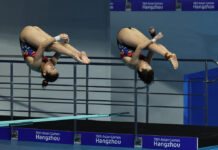
KUALA LUMPUR – Regulating athletes’ social media activity through a code of conduct may be unnecessary, says sports analyst Sadek Mustaffa, as concerns arise over the government’s plan to introduce stricter guidelines for national athletes.
Youth and Sports Minister Hannah Yeoh recently proposed the initiative, highlighting discipline issues flagged during Malaysia’s Paris Olympics post-mortem.
She criticised some athletes for prioritising social media over their training, citing frequent posts about casual outings and socialising as evidence of misplaced focus.
However, Sadek, a senior sports science lecturer at Universiti Teknologi Mara, believes a blanket policy could unfairly restrict athletes’ personal freedom.
He argued that social media activity does not necessarily reflect an athlete’s professionalism or commitment to their sport.
“Athletes know their responsibilities and the boundaries of acceptable behaviour. Unless posts promote negativity such as violence, racism, or nudity, there’s no reason to impose a code of conduct,” Sadek told Scoop.
“Who are we to judge professionalism purely based on social media posts? Athletes are influential figures, and interacting with fans online is part of their role. Restricting this could stifle their freedom of expression unnecessarily.”
Sadek also questioned the timing of the ministry’s concerns, suggesting that guidelines should have been introduced earlier if social media was an issue during the Olympics.
“The ministry should have provided clear expectations before the Paris Games. This would have ensured athletes understood what was acceptable while representing the country.
“The ministry should also specify which athletes they are unhappy with, rather than generalising the need for a code of conduct for all national athletes, many of whom have done nothing wrong,” he added.
While critical of overreach, Sadek acknowledged the potential benefits of a well-designed code of conduct, drawing parallels to corporate policies that set expectations for employees.
“Despite its flaws, if we consider the proposal holistically, it’s a good initiative from the government and beneficial for the entire sports system.
“The government has invested heavily in athletes under programmes like Podium and RTG (Road to Gold). Therefore, it’s fair to expect some level of accountability.
“With a proper and updated code of conduct, athletes would have clearer guidelines, which could help limit lifestyle-related posts on social media if that’s the government’s concern,” Sadek added.
Malaysia won two bronze medals at the Paris Olympics, courtesy of Aaron Chia-Soh Wooi Yik and Lee Zii Jia. – November 17, 2024



